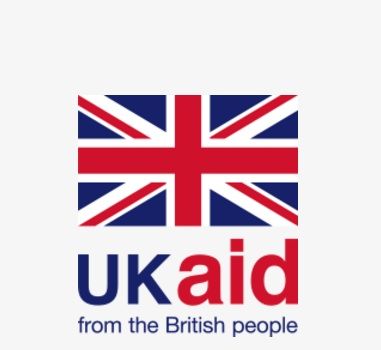
To be considered as registered in a specific country, your organisation must be registered as a not-for-profit organisation in that country. If your organisation is part of a larger international family, we will expect you to demonstrate significant autonomy; your organisation must be registered in the specific country and have its own country specific constitution and an independent board of trustees, i.e. the board must be locally appointed and be free and able to make independent decisions on strategic and operational issues. You may be asked to provide relevant documentation as evidence of this status.
The applicant organisation must have an average income of less than £10m per annum for the past 3 years.
Purpose
Large grant type for initiatives focused on bringing tangible change to the lives of the poorest and most marginalised on a larger scale.
Grant size
Applicants can apply for funding of between £250,001 and £4m per application.
Total grant funding from DFID over the last 3 years must not exceed 40% of the total income for the organisation over the same period. This excludes incomes received through commercial contracts with DFID.
DFID funding rules prohibit an organisation from receiving more than 40% of its income from DFID grants in each project year. Applicants must be confident that they will be able to abide by this condition over the lifetime of the UK Aid Direct grant.
Applicant organisations must have an average annual income of less than £10,000,000 for the past 3 years (as shown in approved organisational accounts). You may be asked to provide relevant documentation as evidence.
New organisations with fewer than 3 years of accounts may also apply but in such cases, average annual income will be calculated based on the organisation’s length of operation.
Project countries
Projects can be set up in one or more of these project countries, made up of the lowest 50 countries in the UN Human Development Index (HDI) and countries DFID considers to be of high or moderate fragility.
Duration
From between 3 to 5 years, proposals for 3+ years must be supported by a compelling case for longer duration.
UK Aid Direct Impact grants can be used to fund new, time-limited projects of up to 60-month (five years) duration. Additional components of on-going programmes must be clearly identifiable as discrete projects, with a well-defined project outcome, a clear, time-limited schedule for delivery, and a distinct budget.
Limit of concurrent grants
Maximum grant allowance per organisation of 3 live Impact grants at any one time.
A live grant is a project with more than 9 months left to run from the start date of the UK Aid Direct call for proposals.
The maximum combined grant model allowance is 5 live UK Aid Direct grants (a maximum of 2 Community Partnership grants and 3 Impact grants).
Matched funding
Organisations must be able to provide 25% of the funds per project as match funding and state the source of funding.
DFID will provide up to 75% of the total project costs. Your organisation or consortium must secure the remaining 25% (or more), either from your own resources or from another external source but excluding all other DFID funds.
The match funding for the first year must be in place before the start of the project, and the organisation will be assessed for its capacity to continue to match fund throughout the duration of the project.
“In kind” contributions cannot be used as part of the match funding. "In kind" contributions are services or items made available to support the project which are not paid for out of the project budget and would not be presented in income and expenditure statements in your organisational accounts, or those of your implementation partner(s).
Proposals deemed to be technically strong would stand an increased chance of being successful if they demonstrate a level of match funding above the minimum 25%.
Consortium applications
For the purpose of the UK Aid Direct programme, DFID defines consortium applications as those submitted by formal consortia only, i.e. where two or more organisations come together to create a new, formally constituted organisation, with its own organisational accounts.
Informal consortia, i.e. where two or more organisations work together on a specific project or initiative only, will be considered as partnerships, as defined on the How to apply page.
All formal consortium members must meet the UK Aid Direct Impact grant applicant organisation eligibility criteria.
To be eligible:
- the average annual income of each consortium member organisation must be less than £10,000,000
- the total combined income of consortium members may exceed £10,000,000
- if registered as a separate legal entity, the average annual income of the consortium must be less than £10,000,000
If the formal consortium does not have its own management structure, one member of the consortium will need to be elected as the ‘lead’ organisation, i.e. the organisation through which all funding would be channelled and who would operate as the main point of contact with DFID for the duration of the project.
Organisations may apply both as an individual organisation and as a member of a consortium at the same time.
If successful, the consortium grant would be counted as a grant held by each of the consortium members and would count towards the maximum combined grant model allowance of 5 live UK Aid Direct grants (a maximum of 2 Community Partnership grants and 3 Impact grants).
